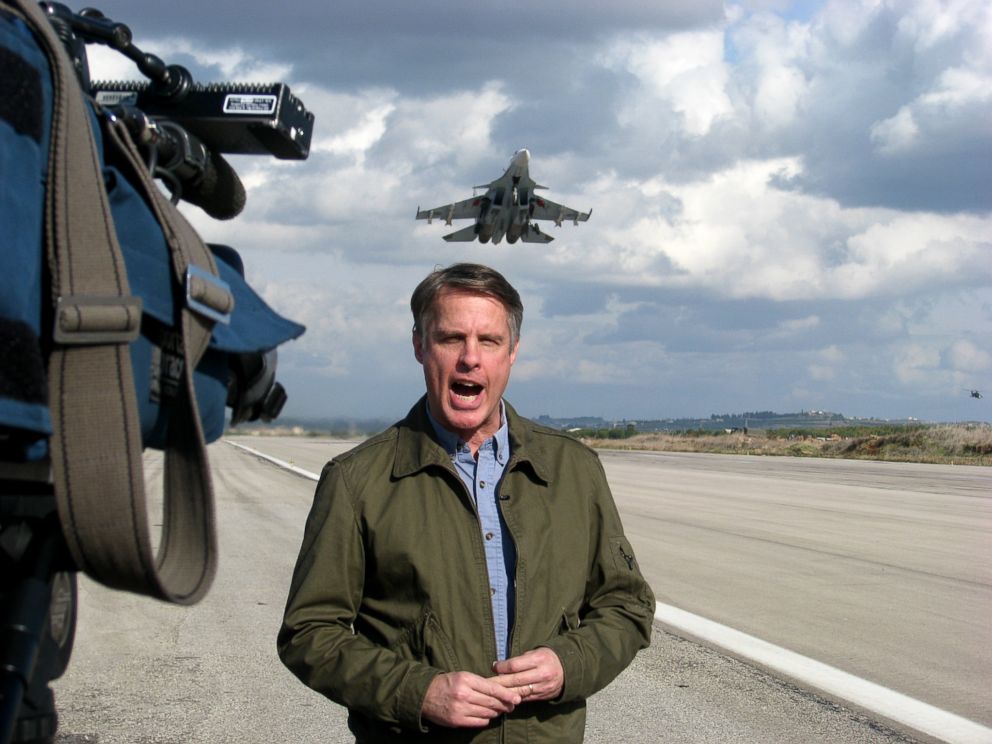Inside the Russian War Effort in Syria
ABC News was on the ground with Russian forces in Latakia.
— LATAKIA, SYRIA -- We are on the ground with Russian forces in Latakia, in northern Syria.
It's an eye-opening experience. The base roars day and night with the takeoff and landing of the several dozen warplanes Russia has deployed here. The perimeter bristles with helicopter gunships and a new air defense system.
And there's a swagger in the step of the troops: these guys want the world to see how Russia's military might has been deployed decisively to change the equation on the battlefield here -- and they look like they are in Syria for the long haul.
We stood a few feet from the runway as Sukhoi SU-30M attack planes, SU-24 jet fighters and other aircraft, most laden with what looked like both precision guided munitions and unguided weapons, shot into the cloudy winter skies. It felt like your insides were getting ripped out as the jets screamed by.

The operational tempo is intense: Major General Igor Konashenkov, spokesman for the Ministry of Defense, claims Russia is flying up to 80 sorties per day. Since Sept. 30, 2015 --the formal commencement of Russian operations in Syria -- these forces have flown 5,700 sorties striking 10,000 targets, Konashenkov adds proudly.
But human rights organizations claim that Russia's war effort here is slaughtering civilians and designed simply to prop up the regime of Bashar al-Assad, Moscow's longtime client in the region. Konashenkov dismisses both accusations with scorn.
We were also shown humanitarian aid loaded onto a cargo plane. The aid, we were told, was going to the besieged town of Deir al-Zour. Reports from the city suggest at least some of the humanitarian aid is being commandeered by Assad's forces for sale on the black market.
I asked Konashenkov directly if Russian aid was also going to the besieged town of Madaya, where the UN says starvation is widespread.
"Yes," he said, "to Madaya also. But this is going to Deir al-Zour."
Beyond the controversies over Russian involvement here is a brute fact: these forces have changed the direction of the war. Last summer, Assad's army was in retreat and his regime was reeling.
Now, with the help of thousands of Russian bombs, the tide has turned. Syrian troops have made small but strategically significant gains. And Assad is breathing easier.




